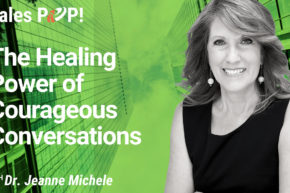If people intentionally opt-in for consultations with us, why are we still reluctant to make follow-up calls? In this Expert Insight Interview, Molly McGrath discusses the concept of follow up. Molly McGrath is a Founder at Hiring and Empowering Solutions, helping law firms achieve continuous improvements.
This interview discusses:
- Embracing follow-up calls
- The power of the pause
- Providing customer experience
Make Follow Up Calls
People think that by calling people, they are bothering them. However, during the period of social distancing, people were delighted to receive a call. Picking up a phone and making a follow-up call communicates that you do not see people only as leads, but you want to connect with them and help them find a solution to their problems. You are responsible for the energy that you bring into a call. If you feel sales heaviness while talking to people, they will recognize that and show resistance. If you shift your mindset to connect with them, they will be open for cooperation.
The Power of the Pause
During the call, it is crucial to be present and to listen to people. The best way to find out other people’s thoughts is to ask and wait for a response. However, many people feel uncomfortable asking a question and stopping until hearing the answer. Our instinct is to fill in the pause, and that is why so many of us talk at people without allowing them to speak.
By being present, listening, and reflecting on what people say, you can learn valuable information. Also, interacting with customers and being curious to hear their perspectives enables you to have insights for your next calls. People think that their problems are so unique, but people in the same industry usually have similar issues. When they feel heard and acknowledged, they will feel less alone and more willing to accept your help by buying a product or service.
Customer Experience
The value to provide to customers nowadays is indeed customer experience. Thus, making sure that everyone in your team, from the president to the front desk agent, speaks the same language is essential. Also, people love to make assumptions. Instead of making assumptions, it is better to get to know people and hear their stories. They will share stories with you as long as you create a safe environment for them. Thus, the key is to remember that you are not calling a lead but a human being with a problem. So, detach from thinking about the outcome and focus on connecting with a person.
Our Host
John is the Amazon bestselling author of Winning the Battle for Sales: Lessons on Closing Every Deal from the World’s Greatest Military Victories and Social Upheaval: How to Win at Social Selling. A globally acknowledged Sales & Marketing thought leader, speaker, and strategist, he has conducted over 1500 video interviews of thought leaders for Sales POP! online sales magazine & YouTube Channel and for audio podcast channels where Sales POP! is rated in the top 2% of most popular shows out of 3,320,580 podcasts globally, ranked by Listen Score. He is CSMO at Pipeliner CRM. In his spare time, John is an avid Martial Artist.




Comments